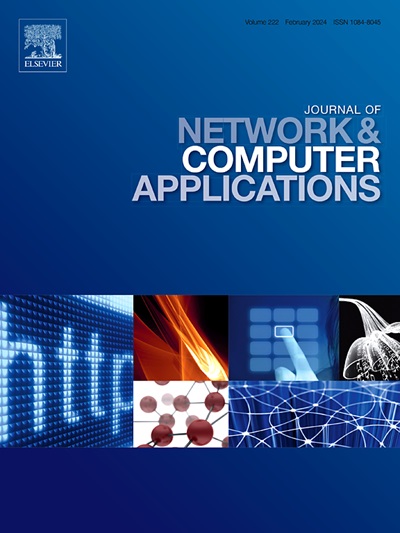基于能量和密度的无线物联网稳定选举路由协议
IF 8
2区 计算机科学
Q1 COMPUTER SCIENCE, HARDWARE & ARCHITECTURE
引用次数: 0
摘要
在基于电池的无线传感器网络(WSN)中,路由协议是提高网络能效和延长网络寿命的关键。这些协议应该最大化簇头(CH)和用于数据收集的传感器的放电时间。为了使WSN的寿命最大化,应该仔细考虑集群的数量、基站与CH之间的距离以及传感器的剩余电池。为了解决这些问题,本研究提出了基于能量和密度的稳定选举协议(SEP)。这项工作的主要贡献有三个方面:(1)一种新的CH选择技术,该技术结合了每个传感器的剩余电池容量和网络密度;(2)确定最大集群数量的动态机制,以防止过多的集群创建;(3)提高能源效率的优化路由方法。仿真结果表明,与现有协议相比,所提出的协议显著提高了网络性能,实现了总能耗的大幅降低和网络生命周期的大幅延长。该研究通过提供密度感知和节能的解决方案,推动了WSN路由的最新发展,该解决方案在延长运行寿命和提高基于WSN的物联网部署在多样化和具有挑战性的环境中的可靠性方面具有巨大潜力。本文章由计算机程序翻译,如有差异,请以英文原文为准。
Energy and density-based stable election routing protocol for wireless IoT network
In battery-based wireless sensor networks (WSN), routing protocols are crucial for enhancing energy efficiency and prolonging network lifetime. These protocols should maximize the discharge times of cluster heads (CH) and sensors for data collection. To maximize the WSN lifetime, the number of clusters, the distance between the base station and the CH, and the remaining battery of sensors should be carefully considered. This study proposes energy and density-based stable election protocol (SEP) for cooperative communication in WSNs to address these challenges. The key contributions of this work are threefold: (1) a novel CH election technique that incorporates both the remaining battery capacity of each sensor and network density; (2) a dynamic mechanism to determining the maximum number of clusters to prevent excessive cluster creation; and (3) an optimized routing approach that enhances energy efficiency. Simulation results conclusively demonstrate that the proposed protocol significantly improves network performance, achieving substantial reductions in total energy consumption and a considerable extension of network lifetime compared to existing protocols. This research advances the state-of-the-art in WSN routing by providing a density-aware and energy-efficient solution that holds significant potential for prolonging the operational lifespan and enhancing the reliability of WSN-based IoT deployments in diverse and challenging environments.
求助全文
通过发布文献求助,成功后即可免费获取论文全文。
去求助
来源期刊

Journal of Network and Computer Applications
工程技术-计算机:跨学科应用
CiteScore
21.50
自引率
3.40%
发文量
142
审稿时长
37 days
期刊介绍:
The Journal of Network and Computer Applications welcomes research contributions, surveys, and notes in all areas relating to computer networks and applications thereof. Sample topics include new design techniques, interesting or novel applications, components or standards; computer networks with tools such as WWW; emerging standards for internet protocols; Wireless networks; Mobile Computing; emerging computing models such as cloud computing, grid computing; applications of networked systems for remote collaboration and telemedicine, etc. The journal is abstracted and indexed in Scopus, Engineering Index, Web of Science, Science Citation Index Expanded and INSPEC.
 求助内容:
求助内容: 应助结果提醒方式:
应助结果提醒方式:


